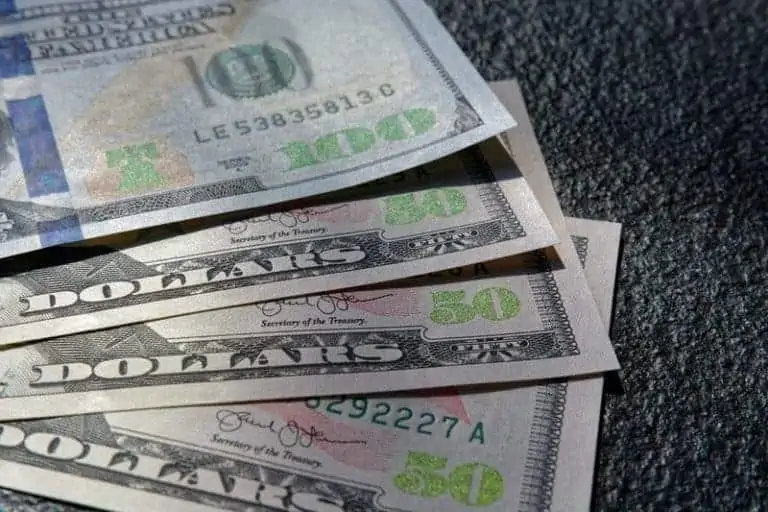Different Types of Savings Accounts You Can Have
Not all savings accounts are created equal, however. There are actually several different types to choose from, and the best choice for you will depend on your goals, how you want to access your money, and how soon you’ll need it.
Here’s the lowdown on the most common types of savings accounts and how to choose the best one for your needs.
Traditional Savings Account
A common place to save money is in a regular savings account that you can open at a bank or credit union.
If your bank is insured by the Federal Deposit Insurance Corporation (FDIC), then your deposits are insured for up to $250,000. The National Credit Union Administration (NCUA) provides similar insurance for credit unions.
You can typically open a basic savings account with a small minimum deposit. And, while the interest rates on these accounts tend to be low compared to other savings options, they offer fairly easy access to your funds.
All savings accounts, however, come with some limits on how many transactions you can make each month. While federal law used to limit certain withdrawals and transfers from savings accounts to six per month, the rule was lifted in the wake of the coronavirus pandemic.
However, many banks still limit electronic and online transactions to six per month.
There are no restrictions on the number of In-person withdrawals and transfers (at the teller or ATM) you can make on a basic savings account.
Online Savings Account
Brick–and–mortar financial institutions aren’t the only place where you can shop for a savings account. If you’re comfortable doing your banking online or from your mobile device, an online savings account can be worth considering.
Because online-only financial institutions tend to have lower overhead costs than traditional banks, they often pass that savings on to customers in the form of higher interest rates and lower, or no, fees.
While you can’t meet with a bank representative face-to-face, these accounts often come with well-designed and user-friendly websites and mobile apps, along with customer service representatives available by phone.
Like other basic savings accounts, online savings accounts typically have restrictions on the number of transactions you can make per month (typically six) without incurring a penalty fee. ATM withdrawals are unlimited, however.
If you choose an online savings account from an institution with FDIC insurance, then your funds will be protected, even if the online bank were to go out of business.
High-Yield Savings Account
The highest high-yield savings account rates are often available from online banks.
Also known as high-interest savings accounts, this type of savings vehicle tends to come with higher interest rates than traditional savings accounts and often lower fees.
You may be able to open a high-yield savings account where you already bank, but the highest rates are often available from online banks.
Depending on the financial institution, a high-yield savings account will likely be insured by the FDIC or the NCUA up to $250,000 per depositor.
Like other savings accounts, withdrawals from high-yield savings accounts may be limited to six per month, and going over the withdrawal limit may trigger a fee.
Money Market Account
Money market accounts can be found at both traditional and online-only banks and are similar to traditional savings accounts in terms of liquidity, safety, and transaction limits.
Money market accounts, however, tend to come with higher interest than a traditional savings account. And, unlike most basic savings accounts, money market accounts often come with a debit card and checkbook, which can make it a little easier to access your money.
On the downside, money market funds generally require a much larger initial deposit than a basic savings account. And, you could be charged fees if the balance goes below a minimum amount.
Due to the potentially higher interest rates and check-writing/debit access, money market accounts can be a good choice for emergency funds if you’ve already saved enough to meet the initial deposit.
It can be important to keep in mind that money market accounts are not the same as money market funds, which are a type of investment account and not guaranteed by the FDIC or NCUA.
Certificate of Deposit (CD)
Certificates of deposit, or CDs, are available at both brick-and-mortar and online institutions, and can be a good savings tool if you don’t need quick access to your money.
CDs come with a specific term–often between three months and five years–during which you need to keep your money in the account.
In return for leaving your money untouched for that time period, CDs generally offer higher returns than standard savings accounts. Generally, the longer term, the higher the yield.
While savings and money market accounts pay variable interest rates (meaning your rate can change after you’ve opened the account) CDs pay fixed rates, so your rate is locked in once you’ve deposited the cash. You’ll know these funds are safe if they’re FDIC insured.
Cash Management Account
A cash management account is a hybrid account that allows you to save and spend all from the same account. In some cases, you may also have access to a debit card, paper checks, and other payment conveniences, like auto bill pay.
Cash management accounts are often offered by financial institutions that aren’t banks, but specialize in investing. These firms offer cash management accounts to enable their customers to spend, save, and invest money all in the same place.
Typically these institutions are partnered with traditional banks, so your money is still safe through FDIC insurance, but be sure to check since not all of them are.
Interest rates for a cash management account are typically higher than what you’d earn with a traditional savings or checking account and, in many cases, the account pays the same rate on the entire balance (not just the “savings” portion of your account.)
Because cash management accounts aren’t technically savings accounts, you aren’t limited to a certain number of transactions per month.
Speciality Savings Accounts
The types of savings accounts listed above can be great places to grow your emergency fund or save money for a downpayment on a house. But if you’re looking to save for a more specific or longer-term goal, such as retirement or a child’s future education, you may want to open a more specialized account.
Opening a specialty savings account can make sense if you have a singular purpose for saving money.
Specialty savings accounts can help you save money for a variety of specific financial goals and can earn interest to help you grow your money, just like other savings accounts. Some of these accounts, however, are investment vehicles, which means they can yield higher returns over the long term, but may also involve some risk.
Some of the most common specialty accounts include: 529 college savings plans, 401(k)s and individual retirement accounts (IRAs), health savings accounts (HSAs), and custodial accounts for a child (so they can have money for education or other expenses when they turn 18).
Opening a specialty savings account can make sense if you have a singular purpose for saving money. You may want to keep in mind, however, that there may be restrictions on when and how you can withdraw those funds later. Some specialty accounts, such as IRAs, 529s and HSAs, have strict tax rules for making withdrawals.
The Takeaway
There are many different types of savings accounts, and the best option for you will likely depend on how and when you want to access your money.
You might like a traditional savings account if you want to bank in person. For better interest rates and lower fees, you might prefer an online high-yield savings account or, if you won’t need the money for a while, a CD.
If having access to paper checks and a debit card is a priority, a money market account might best serve your needs.
For more specific savings goals, such as preparing for retirement, covering health expenses, or saving for your child’s education, you may want to open a specialty savings account in addition to a more liquid savings vehicle.
Looking for Something Different?
If you like the idea of earning, spending, and saving all in one account (and you’re not a fan of fees) you might want to consider opening a cash management account, such as SoFi Money®.
With SoFi Money’s special “vaults” feature, you can separate your savings from your spending while earning competitive interest on all your money. And you won’t pay any account fees, monthly fees, or many other common fees.Learn more about how SoFi Money can help you reach your saving goals.
SoFi Money®
SoFi Money is a cash management account, which is a brokerage product, offered by SoFi Securities LLC, member FINRA / SIPC . Neither SoFi nor its affiliates is a bank. SoFi Money Debit Card issued by The Bancorp Bank. SoFi has partnered with Allpoint to provide consumers with ATM access at any of the 55,000+ ATMs within the Allpoint network. Consumers will not be charged a fee when using an in-network ATM, however, third party fees incurred when using out-of-network ATMs are not subject to reimbursement. SoFi’s ATM policies are subject to change at our discretion at any time.
Financial Tips & Strategies: The tips provided on this website are of a general nature and do not take into account your specific objectives, financial situation, and needs. You should always consider their appropriateness given your own circumstances.
Tax Information: This article provides general background information only and is not intended to serve as legal or tax advice or as a substitute for legal counsel. You should consult your own attorney and/or tax advisor if you have a question requiring legal or tax advice.
SOMN19078







